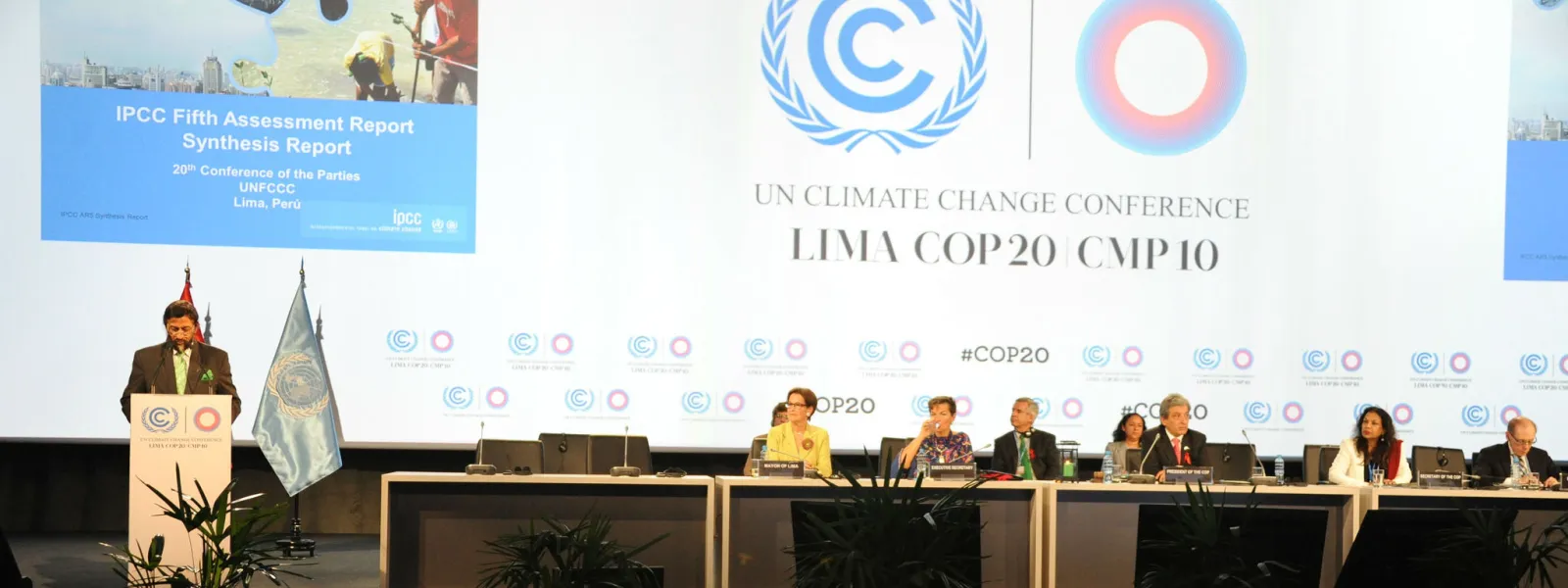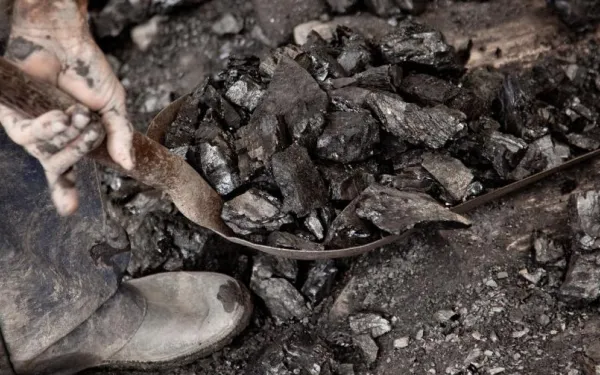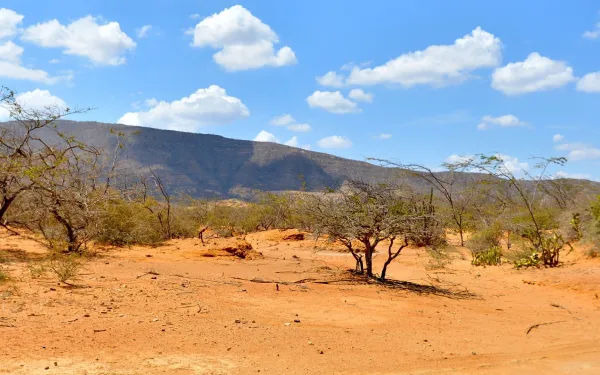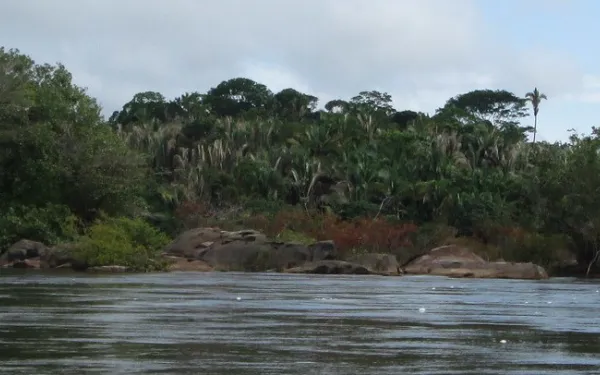
Project
Photo: UNFCCCMonitoring the UN Climate Negotiations
As changes in climate become more extreme, their affects are being hardest felt throughout developing countries. Since 1994, the United Nations Framework Convention on Climate Change has laid out actions to limit the increase of global average temperatures and confront the impacts of climate change.
The States that are Parties to the Convention meet every year in the so-called Conference of the Parties (COP) to review their commitments, the progress made in fulfilling them, and pending challenges in the global fight against the climate crisis.
At COP21 in 2015, they adopted the Paris Agreement, which seeks to strengthen the global response to the climate emergency, establishing a common framework for all countries to work on the basis of their capacities and through the presentation of Nationally Determined Contributions (NDC) that will:
- Limit the increase in global temperatures to 2°C compared to pre-industrial levels and continue efforts to limit it to 1.5°C;
- Increase the capacity of countries to adapt to the impacts of climate change; and
- Ensure that financing responds to the goal of reducing greenhouse gas emissions.
Our focus areas
THE CLIMATE CRISIS AND HUMAN RIGHTS
The climate crisis, due to its transversal character, has repercussions in various fields, geographies, contexts and people. In this regard, the Preamble to the Paris Agreement states that it is the obligation of States to "respect, promote and fulfill their respective obligations on human rights, the right to health, the rights of indigenous peoples, local communities, migrants, children, persons with disabilities and people in vulnerable situations and the right to development, as well as gender equality, the empowerment of women and intergenerational equity."
AIDA at the COP
COP25: Chile-Madrid 2019
At COP25 in Madrid, Spain, we advocated for the inclusion of the human rights perspective in various agenda items. We promoted the incorporation of broad socio-environmental safeguards in the regulation of Article 6 of the Paris Agreement, which refers to carbon markets. We closely followed the adoption of the Gender Action Plan, as well as the Santiago Network, created "to catalyze technical assistance […] in developing countries that are particularly vulnerable to the adverse affects of climate change." We also encouraged the inclusion of ambitious and measurable targets for the reduction of short-lived climate pollutants in the climate commitments of States.
Related projects

High court orders Colombian government to adopt concrete actions for climate crisis mitigation and adaptation
After evidencing that the Ministry of Environment failed to comply with climate obligations contained in the national legislation, the State Council ordered the entity to take concrete measures to meet these commitments within one year. This is the final decision in the litigation filed by various stakeholders demanding the State to include the climate impact of the coal sector in its climate crisis management. The State Council ordered the Ministry of Environment and Sustainable Development to adopt, within one year, specific measures to mitigate and adapt to the climate crisis in order to fulfill part of the country's climate commitments. With this ruling, the High Court resolved a compliance action filed on May of this year by a coalition of civil society organizations, think tanks and universities to require the State to include the impacts of the coal production chain in the climate policy.In the decision, the State Council acknowledges the Ministry's failure to comply with the norms to include climate impacts in projects with environmental management and control instruments, the lack of regulations regarding emissions from the coal sector, and the absence of a report and evaluation of the impact of the implementation of nature-based solutions programs and projects.Although the decision could have been more ambitious by also recognizing other alleged non-compliances that were proved in the litigation, the high court issued four fundamental orders to be complied by the Ministry of Environment:Inclusion of climate change adaptation and mitigation considerations in the environmental management and control instruments of projects, emphasizing the quantification of greenhouse gas (GHG) emissions and the contributions of environmental compensation measures to the Nationally Determined Contributions, submitted by the State to the United Nations Framework Convention on Climate Change.Adopt a national guideline for formulating, developing, monitoring, reporting and evaluating the impact of implementing nature-based solutions programs and projects. This must include climate change management, integration with an ecosystem approach, contributions to the economy, benefits to biodiversity and human communities.Determining the methodologies for calculating direct and indirect emissions that must be reported, the methods, tools, processes and periodicity of reporting on GHG emissions, and the information and documentation required for GHG inventories.Regulation of the conditions for the verification, certification and registration of GHG emissions, emission reductions and removals as well as determination of the follow-up and control procedures foreseen. Based on the result, this litigation is the first successful case of strategic and climate litigation in the continent, as it was possible to prove that the State failed to comply to specific climate commitments, and has succeeded to order to one of the competent authorities to adopt concrete actions for appropriate climate management. The strategy employed and the precedent achieved can well be replicated in other countries in the region.The enforcement action was filed with the Administrative Court of Cundinamarca by the Interamerican Association for Environmental Defense, the José Alvear Restrepo Lawyers Collective, Censat Agua Viva, Centro de Investigación y Educación Popular, POLEN Transiciones Justas, Universidad de Magdalena and researcher Paola Yanguas.In July, the court issued the first-instance ruling in this case. In it, it issued eight orders requiring not only the Ministry of Environment—but also the Ministry of Mines and Energy—to comply with Law 1931 of 2018 and Law 2165 of 2021, which set out the minimum actions that Colombia must take to meet its climate commitments at international level.This litigation showed that over the last six years, the government has omitted the obligations contained in these laws, particularly in relation to the climate impact caused by the coal sector.The case was subsequently referred to the State Council, whose final decision confirmed part of the ruling of the Administrative Court of Cundinamarca.As the largest coal exporter in Latin America, Colombia is obliged to include in its climate commitments the true extent of the impact of the coal sector. This was demanded by the communities of La Guajira, which have been directly affected for decades.Although these communities did not sign the litigation, they sponsored it and accompanied its presentation with traditional dance and music. Press contact:Víctor Quintanilla-Sangueza (Mexico), AIDA, [email protected], +521 5570522107
Read more
Expanding coal mining in Colombia contravenes a just energy transition
Colombia faces numerous challenges related to the just energy transition the world needs. As the main exporter of thermal coal in Latin America, one of its primary challenges is to define the future of this mineral in the country's economic and energy matrices, as well as how to align this sector with its commitments to address the global climate crisis. Certainly, the measures taken to achieve a just energy transition and meet climate commitments must respect and guarantee human rights. The State must do so with a differentiated perspective that respects the most vulnerable groups in society who are most affected by the impacts of the climate crisis and transition processes. As part of a plan to change the energy transition strategy, the current government has proposed to create a roadmap that focuses, among other things, on promoting renewable energy projects from non-conventional sources, among other initiatives. The proposal is based on four principles: equity, social and binding participation, sovereign graduality with reliability, and a principle of knowledge. Although the proposed strategy can be seen as progress towards energy transition and meeting international commitments and standards, it has some gaps: it does not focus sufficiently on fossil fuel substitution and ignores the role and impact of the coal sector in all its phases. The omission of the structural causes of the climate crisis hinders the consolidation of an energy transition, which is now a contested scenario with various claims and interests at stake. A vivid example is the department of La Guajira in the north of the country, where a high potential for renewable energy coincides with the extraction of 35% of exported coal, exacerbating the climate crisis. This has increased the region's already high climate vulnerability and aggravated human rights violations in that territory. The impacts–particularly water stress, desertification, and reduced rainfall—have been so severe that the government has declared a state of economic, social, and environmental emergency in La Guajira, where the El Niño phenomenon is expected to occur with greater intensity and duration than in previous years. The coal sector’s role in the energy transition process Combating and addressing the climate crisis requires progress in replacing fossil fuels, as well as slowing down the expansion of their extraction and exploitation with the obvious consequence of limiting their use as much as possible. In the countries of the Global South, which are highly dependent on the extraction and commercialization of fossil fuels, the debate has begun on whether and how to move forward with the substitution process. If Colombia is to move forward in meeting its climate commitments and in the process of a just energy transition, it must halt the approval of new thermal coal mining projects, avoid the expansion of existing projects, and initiate responsible exit processes for a gradual closure of mining operations in which rights are guaranteed. The energy transition roadmap should focus on avoiding, as much as possible, human rights impacts (territorial, subsistence, and environmental) on the communities most affected by the impacts of the climate crisis. The goal is to avoid further human rights violations and a lack of protection for the territories traversed by the coal sector's production chain. The debate around the energy transition and the socio-environmental conflicts associated with coal is fully exemplified in the case of the Bruno stream, in La Guajira, with an ongoing legal process. It is now in the hands of the Constitutional Court to decide between the protection of a stream vital to an area of high water stress and the exploitation of its channel to expand the mine of the company Carbones del Cerrejón (owned by the multinational Glencore). What is at stake is the guarantee of the Wayúu communities' rights of access to water, health and life. The debate about the energy transition and the socio-environmental conflicts associated with coal is exemplified by Bruno Stream in La Guajira, which is the subject of a court case. It is now in the hands of the Constitutional Court to decide between the protection of a stream vital to an area of high water stress and the exploitation of its channel to expand the mine of the Carbones del Cerrejón company (owned by the multinational Glencore). What is at stake is the guarantee of the Wayúu communities' rights to access to water, health and life. What just transition does need After analyzing the role of coal in the process of just energy transition in Colombia, it is possible to conclude that the country is not meeting its climate commitments because it has not established specific measures and actions for the coal sector in its climate policy. If Colombia wants to move forward in fossil fuel substitution, climate policy and the energy transition process cannot be separated from the monitoring and decision-making of the relevant authorities regarding specific projects in the coal sector. Climate change management and the energy transition process must recognize the claims of justice, reparation, and non-repetition raised by communities affected by years of coal extraction, such as those in the department of La Guajira. In a just energy transition scenario, progressive, participatory and inclusive processes to end mining - together with the affected communities - must be ensured, aiming to create diversification and conversion scenarios in regions with high dependence on the coal sector. Acting within this framework is desirable and possible.
Read more
Unmasking Canada Rights Violations Across Latin America (Executive Summary)
In the 4th cycle of Canada’s Universal Periodic Review (UPR), more than 50 civil society organizations and communities impacted by Canadian business conduct in Latin America and the Caribbean presented three reports that reveal troubling findings.Regional Report: Reveals the status of 37 projects in 9 countries in the region, involving 34 Canadian companies and consortiums. Most of these projects are in the extractive sector (27 mining and 8 oil) and two renewable energy projects (1 hydroelectric, 1 wind). In all of them, human rights have been violated and serious environmental impacts have been reported, impacting Indigenous, Afro-descendant, peasant and fishing communities.Amazon Report: Measures the impact of Canadian companies in the Amazon basin of Brazil, Ecuador, Colombia, and Peru. The report analyzes 12 extractive projects that impact fragile ecosystems and Indigenous communities, demonstrating that Canadian companies systematically violate impacted communities’ human rights and threaten the environment in a region with the greatest biodiversity in the world, which is a strategic space to confront the climate crisis.Oil Report: Assessing Canadian business conduct in eight oil projects in Colombia, Ecuador and Peru, the report reveals how the lack of protection mechanisms, access to justice, and comprehensive redress for impacted peoples and communities, requires Canada to recognize the interconnection between human rights and the environment, and take concrete measures to address the negative impacts of Canadian companies. This is not the first time that Canada has been denounced before the United Nations Universal System for the improper behavior of its companies abroad. During its third UPR, Canada received six recommendations that, despite committing to implementation, evidence presented by civil society in this cycle demonstrates the persistence of non-compliance with its extraterritorial obligations and lack of adequate measures to fulfill the responsibility to regulate the conduct of its companies. View and download the Regional Report (in Spanish)View and download the Amazon ReportView and download the Oil Report (in Spanish)
Read more